How to encrypt your Android device - Quick guide and best third-party apps - Android Authority
How to encrypt your Android device - Quick guide and best third-party apps - Android Authority |
| How to encrypt your Android device - Quick guide and best third-party apps - Android Authority Posted: 12 Oct 2017 04:15 AM PDT  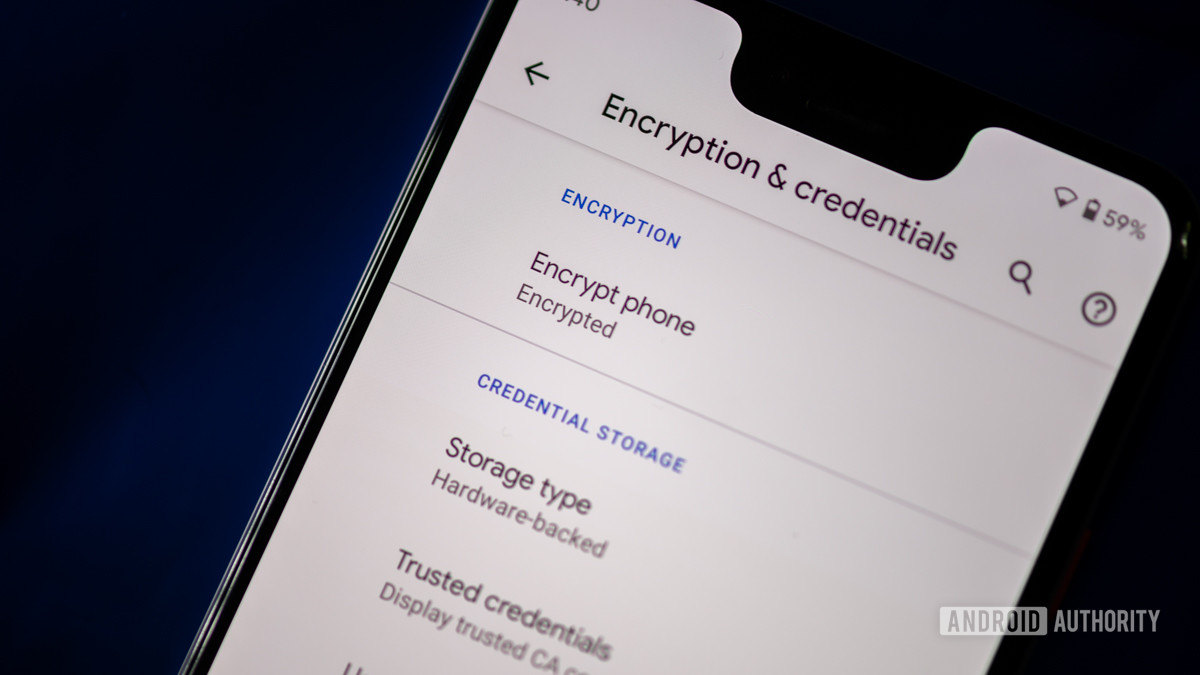 There's little doubt that keeping your personal data secure these days is pretty important, so it is fortunate that Android gives you the tools you need to secure your device right out of the box. If you have been wondering how to get started, this guide will walk you through how to encrypt your Android device. What is device encryption and what does it do?Before we go through how to enable it, it is probably best to understand what exactly encryption is and what the pros and cons are. Device encryption is not a one-stop solution for protecting all of your data and information from prying eyes, especially when you are sending data over the internet. Instead, device encryption converts all of the data stored on your phone into a form that can only be read with the correct credentials. This goes above and beyond a regular lock screen password, as data can still be accessed from behind this screen with some specialized knowledge and use of recoveries, bootloaders, or the Android Debug Bridge. Once encrypted, your music, photos, apps, and account data can't be read without first unjumbling the information using a unique key. There's a fair bit of stuff going on behind the scenes, where a user password is converted into a key that is stored in a "Trusted Execution Environment" to keep it secure from software attacks. This key is then required to encrypt and decrypt files, sort of like those alphabet cypher puzzles that scramble up letters. 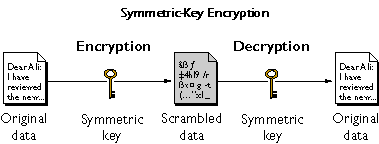 With Android, this is very simple from a user's viewpoint. You just enter your passcode whenever you boot up or unlock the device and all of your files will be accessible. This means that if your handset falls into the wrong hands, no-one else will be able to make sense of any of the data on your phone without knowing your password. Before you leap in, there are a couple of points to consider. Firstly, opening up encrypted files requires additional processing power, so this will take a slight toll on the performance of your handset. Memory reading speeds can be a lot slower on older devices, but the performance hit in the vast majority of regular tasks is only very minor, if even noticeable at all. Secondly, only some smartphones will offer an option to remove encryption from your handset. Encryption is a one way only process for most smartphones and tablets. If your handset doesn't offer an option to decrypt the entire phone, the only option is to perform a complete factory reset that removed all of your personal data from the device. So check this out with your manufacturer beforehand. With that out of the way, let's explore how to turn encryption on. How to encrypt my Android device?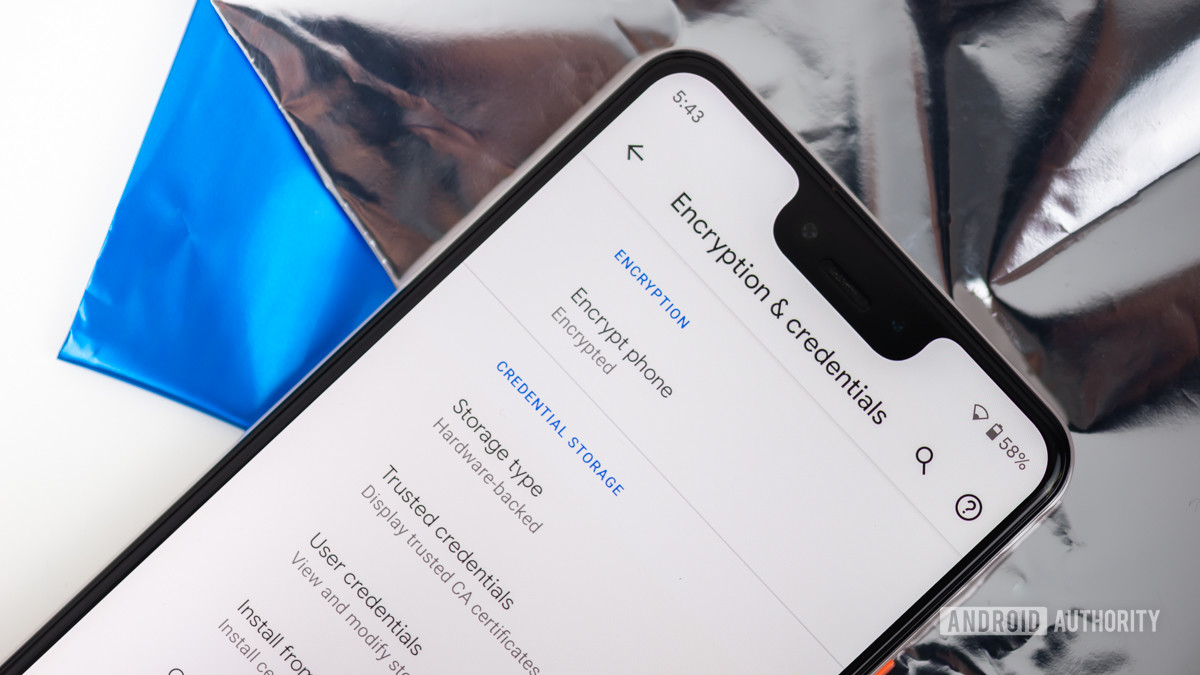 Device encryption works in the much the same way across all Android devices, but the methods for enabling it have changed ever so slightly over the years. Most devices come with encryption enabled by default these days, particularly those running newer versions of Android. If your phone doesn't have it enabled, you can do it manually with just a few taps. Android 5.0 or higherFor Android handsets and tablets running Android 5.0 Lollipop or newer, you can navigate straight to the "Security" menu under settings. Getting here might be slightly different depending on your OEM, but with stock Android, this can be found under Settings > Personal > Security. Here you should see an option to "Encrypt phone" or "Encrypt tablet". You'll be asked to plug your phone in to charge while the process takes place, just to make sure that your phone doesn't shut off and cause errors. If you haven't done so already, you will be prompted to set a lock screen PIN or password, which you will need to enter when you turn your phone on or unlock it in order to access your newly encrypted files. Be sure to remember this password! Android 4.4 or lowerIf you're running a handset with Android 4.4 KitKat or lower, you will have to set up a PIN or password before starting up the encryption process. Fortunately, this is simple enough. Head on over to Settings > Security > Screen Lock and either pick a pattern, numbered PIN, or mixed password for your lock screen. This will be the same password used after encryption, so make a note of it. Once that's done, you can go back to the Security menu and hit "Encrypt phone" or "Encrypt tablet." You'll need to have your phone plugged in and read through the warning messages, and you will almost certainly have to confirm your PIN or password one last time before the encryption process starts.  Encrypting your phone can take an hour or more, depending on how powerful your handset is and the amount of data that you have saved on the device. Once the process is finally finished, you can enter your PIN and start using your newly encrypted device. Back in the Security menu, you will also likely spot an option to encrypt files on your microSD card as well. This is a recommended step if you want to keep all of your data secure, but it isn't really necessary if you're just using your microSD card to save music or films that aren't particularly personal. There are a few caveats here too. Firstly, you will no longer be able to use your microSD card with other devices without completely removing the encryption first, as other phones or computers won't know the key. Although an encrypted microSD card is still completely transparent to move files to and from over USB, just so long as you access the encrypted files from the phone used to encrypt it. Furthermore, if you reset your device before selecting decrypt, then the encryption key will be lost and you won't be able to gain access to the secure files on your microSD card. So think about this one carefully. And you're doneThat's it. It really is that simple to encrypt Android devices and is a great way to keep your data a lot more secure. There are minimal trade-offs in terms of performance, but any differences should be very hard to notice on modern handsets. 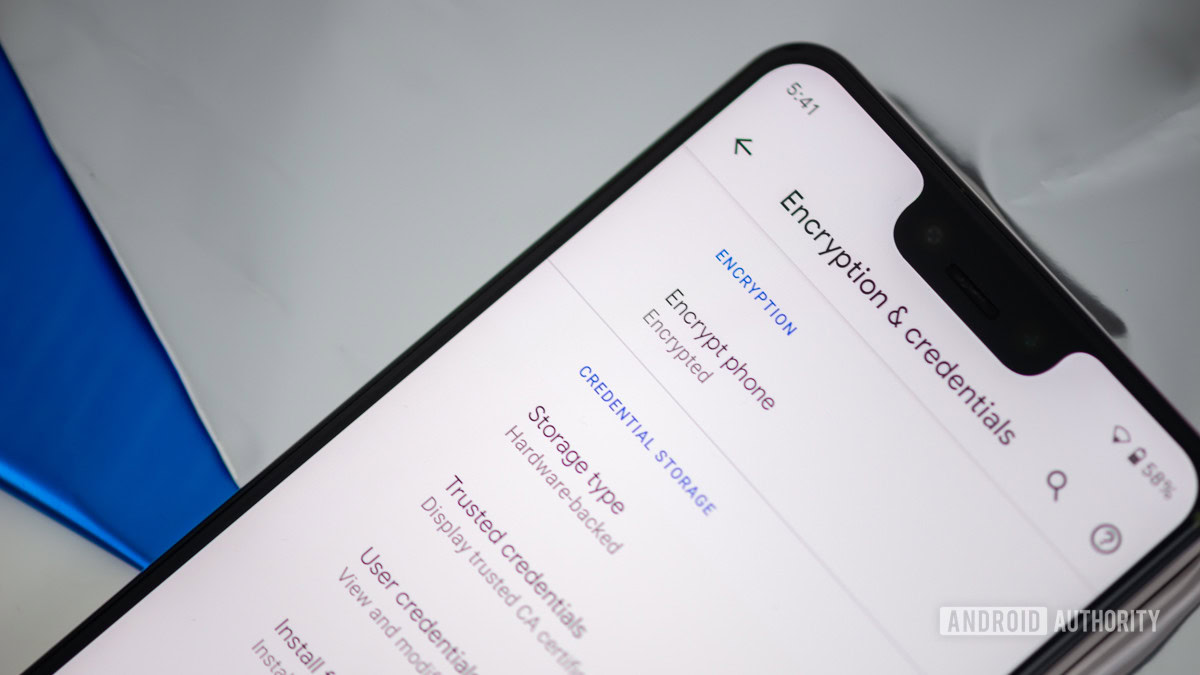 Extra options with third-party appsIf you don't fancy committing yourself to full device encryption, there are a small number of Encrypt Android apps in the Play Store that offer up a section of different features, including single file, text, and folder encryption options. SSE – Universal Encryption App SSE has been running for quite a while and still appears to be receiving little updates every now and again. Rather than mass encrypting your entire phone, SSE can be used to secure and decrypt individual files or directories, which you might prefer if you just want to keep a few things secure. You can set passwords to work as your decrypt key and there's an option to either create encrypted copies of files or completely replace them. SSE has been running for quite a while and still appears to be receiving little updates every now and again. Rather than mass encrypting your entire phone, SSE can be used to secure and decrypt individual files or directories, which you might prefer if you just want to keep a few things secure. You can set passwords to work as your decrypt key and there's an option to either create encrypted copies of files or completely replace them. The app also features a text encryptor and a password vault. The text editor can be used for keeping encrypted notes and these can be shared across platforms. The vault is designed to store and manage all of your passwords, PINs, and notes in one secure place protected by one master password. Sort of like an encrypted LastPass on your device. Crypto Ghost – File Encryption If you're looking for a way to share encrypted and signed files with your contacts, then it might be worth checking out Crypto Ghost. This app can secure your files with a personal key using your email and password, which has the added convenience of making your password retrievable. You can also generate a separate password for files so that you can share them with your friends without having to expose your main password. If you're looking for a way to share encrypted and signed files with your contacts, then it might be worth checking out Crypto Ghost. This app can secure your files with a personal key using your email and password, which has the added convenience of making your password retrievable. You can also generate a separate password for files so that you can share them with your friends without having to expose your main password. It's not possible to encrypt files to share using the default Android method, as they are decrypted on the device first and you can't reproduce keys for use on other devices. So this is a handy solution for sharing files that you might not want others to see. Safe Camera – Photo Encryption If you don't have that many files that you're too concerned about and just want to keep your pictures safe, then you could use an app like Safe Camera. Safe Camera encrypts your photos as soon as you take them, and they can then be viewed from the dedicated gallery. The camera app is relatively basic, with flash and timer options but not much else. If you don't have that many files that you're too concerned about and just want to keep your pictures safe, then you could use an app like Safe Camera. Safe Camera encrypts your photos as soon as you take them, and they can then be viewed from the dedicated gallery. The camera app is relatively basic, with flash and timer options but not much else. Once you've taken your pictures, you can share them using your master password for the app, a unique password, or even decrypt them if you want to. There's an option to import and secure existing photos, and the app also supports GIFs. Speaking of communication, there are also a number of apps that offer encrypted communications over both the web and text. Although these apps require you to set-up and share keys with your partners, so there's a fair bit more work involved here. New Android security and encryption features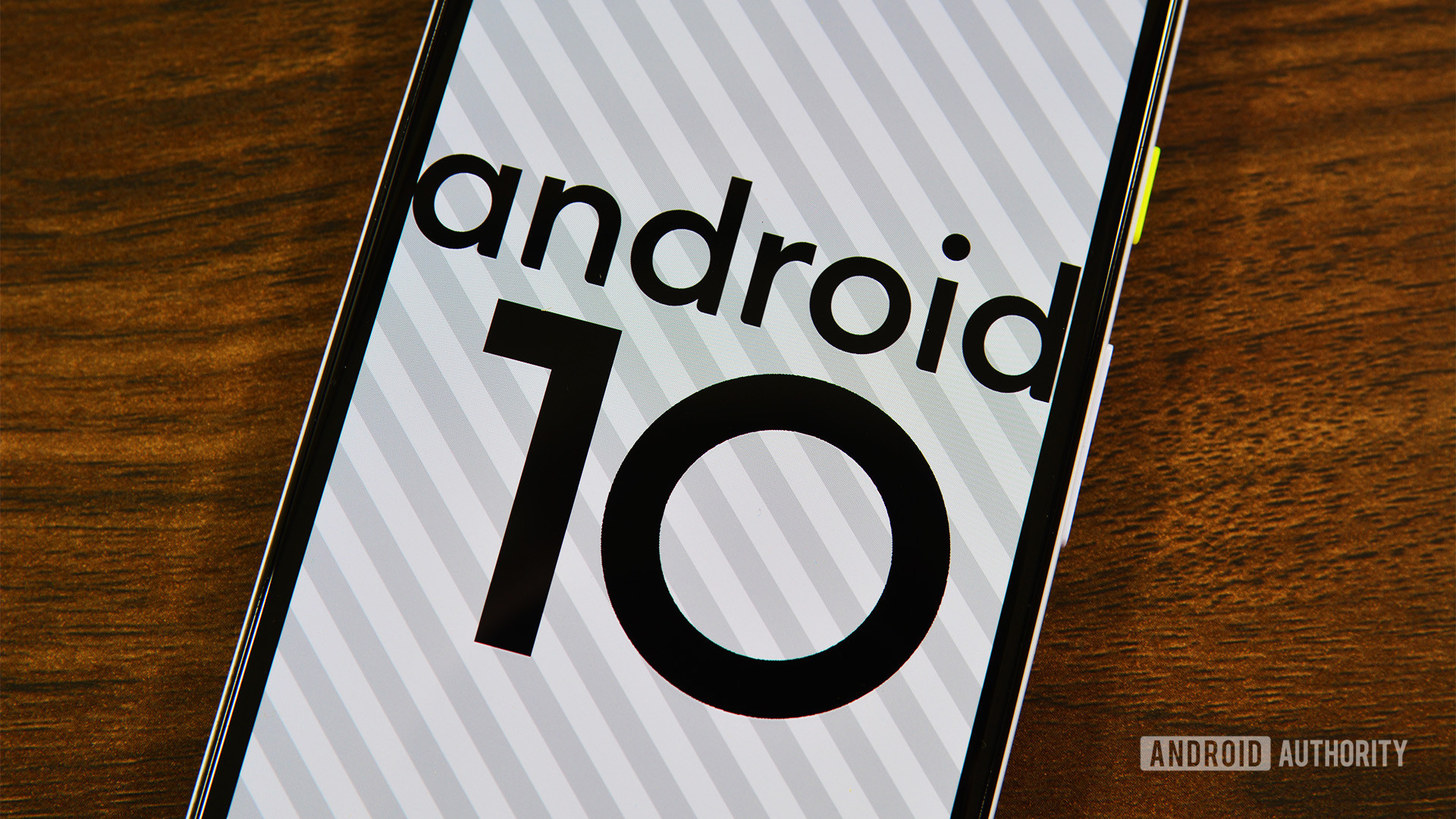 As mentioned, most new Android smartphones have device encryption turned on automatically. A big change that was introduced a couple of years ago with Android 7.0 Nougat was Direct Boot. Before Direct Boot, your entire encrypted phone would be locked down until you enter the password. Since Nougat, the system allows a small selection of software to run as soon as you turn on your phone. This means that phone calls, alarms, and the like can right away from boot, while apps that you download and more personal data won't work until you enter the password. This was a part of Google's revised approach to encryption, which saw the old entire partition encryption method replaced by file-level encryption. File-level encryption is faster on older devices because the system doesn't have to decrypt huge chunks of data all at once. This method has the added benefit of granting apps much finer control over the data that is and isn't decrypted, which can significantly improve security in the event that a system is compromised. Google continued to further improve its security features with Android 8.0 Oreo with more granular control over app permissions, additions to the Verified Boot feature, native two-factor authentication support, and more. More importantly, Oreo also introduced enhanced encryption for the enterprise. All devices are able to utilize separate encryption keys for personal and work profiles. Device administrators are also given the ability to activate work profile keys remotely to ensure complete data protection. Oreo also brought Project Treble with it, which was another big step to ensure faster delivery of software and security updates. Android 9.0 Pie introduced some key privacy and encryption features as well. Apps running in the background no longer have access to the mic and camera and other sensors (other than GPS). Also huge is the addition of client-side encryption. While all data backed up from your Android device to Google's servers is encrypted, it is encrypted by Google for Google. In other words, Google can still technically access it. With Android Pie, backups are encrypted with a client-side secret. As before, your data travels over a secure, encrypted connection to Google's servers, but the actual data is encrypted using a password that only you know. This also means your PIN, pattern, or password is required to restore data from the backups.
With Android 10, Google took things a step further. All phones running the latest version of Android have to be encrypted by default, including entry-level devices. These were previously exempt since they lack the hardware required for advanced encryption. Not anymore. With Android 10, Google introduced Adiantum, which is a new method of encryption that works on the most budget of budget phones (including Android Go phones) and can even work on things like smartwatches and smart TVs. Android 10 also adopts TLS 1.3, which encrypts and secures the traffic from your phone to whatever internet-based service you are connecting to. In other words, that purchase you want to make while surfing the Wi-Fi at Starbucks is now forcibly protected. Additionally, Google introduced several other privacy features with Android 10. You no longer have to give an app full permission to things like location and microphone. Instead, you can give the app permission to use that stuff only while it's active. Apps can also no longer access device information like the serial and IMEI number. More posts about securityGiven the amount of sensitive personal information that we keep on our mobile devices these days, including banking details, encrypting your Android device is a very sensible decision. There are quite a few options out there offering various levels of security, from system-wide Android encryption to apps dedicated to protecting more specific files. Keep in mind though, encryption won't give you complete protection from everything, but it offers excellent protection in the case of stolen devices. |
| Best Privacy Apps for Android in 2020 - Android Central Posted: 23 Apr 2020 12:00 AM PDT
Best Privacy Apps for Android Android Central 2020 Most people use the term privacy app and VPN (a virtual private network) interchangeably, and while these programs give you a wide range of tools like data encryption, secure browsing, and location shields, there are other programs out there that also give you ways to secure your Android phone. Bitdefender Mobile Security is the best because it has most of the privacy tools you need in one app including a VPN, safe browsing, and remote locating and locking of your device. Best Overall: Bitdefender Mobile Security
Bitdefender is my top pick for virus protection on both computers and mobile dvices, and part of its package is 200Mbps of daily VPN encryption. This isn't a lot, but it is enough to keep what you're doing in apps or online private from internet snoops. It also has safe browsing that not only keeps your online browser history from being tracked, but also warns of dangerous websites before you access them, stops malicious downloads, and blocks phishing schemes. Bitdefender includes a personal firewall, which is a good tool to have while connected to public hotspots. It does take up more resources than other privacy apps, so it will cause slightly more slowdown of your device compared to other solutions. But it won't be enough to cause any real headaches. Another security tool included with Bitdefender Mobile Security is remote location. This helps track down your phone if it is ever lost or stolen. You can also use this remote access tool to lock down apps or wipe all personal information from your phone so it can't be compromised. Pros:
Cons:
Best Overall Bitdefender Mobile SecurityPrivacy and malware protection Bitdefender keeps your Android free from malware while also protecting your privacy with its VPN service.
Best VPN App: Hotspot Shield
The biggest reason to use a privacy app on your Android is to keep your personal information safe while connected to public hotspots. This is where you're most vulnerable to hackers and snoops. Hotspot Shield is a VPN app that automatically enables when your device is turned on and keeps your mobile information private so it can't be tracked and your devices won't be hacked. Whatever you do online is kept confidential, so you won't be bothered by spyware or adware that likes to create personal ads based on the items you've bought or searched for. Hotspot Shield uses AES 256-bit encryption, which is the highest code available and used by the U.S. military and banks to secure sensitive digital information. This privacy app doesn't work to secure individual apps, which is okay since your whole device is shielded once the privacy app is enabled. However, it does interfere with streaming apps, like Hulu and Disney+. You can work around this and watch these streaming services through a web browser rather than the mobile app. Pros:
Cons:
Best VPN App Hotspot ShieldPrivate connections in public places Hotspot Shield is especially good at protecting your privacy while connected to public Wi-Fi by using military-grade encryption.
Best Safe Browser App: Tor Browser
This browser covers your tracks as you search and browse online. It doesn't shield you quite in the same way as a VPN does, but it does keep ads at bay and wipes cookies away each time you leave a website. The Tor Browser makes it difficult for adware to figure out your history to create targeted ads based on what you've searched for or bought online. All Tor users look the same from the backend. While you are in the Tor Browser app, you can't take screenshots of what you're looking at. This is just another layer of security to ensure your personal information is kept safe. While Tor is a good tool for securing your privacy, it has a reputation for allowing its app to be used for illegal purposes, such as accessing restricted regional websites. I don't condone illegal behavior, but if you just need safe browsing then Tor Browser is a good choice. Pros:
Cons:
Best Safe Browser App Tor BrowserBrowse safe and under the radar Tor Browser secures your online browser history by blocking adware and clearing cookies each time you leave a website.
Best Password Manager App: Dashlane
This app places all your passwords and login credentials into a secured app that makes it more difficult for keyloggers and other internet snoops to swipe them as you log into online accounts. Dashlane uses a single, main password to secure all the individual passwords, so if the app is penetrated, only this one password is compromised and not the others (it's difficult for hackers to figure out that this password is to a password manager app and not to your online account). As you set up a Dashlane account, it will let you know if your password is good or not. And it will help you update passwords to online accounts and make sure they are difficult to figure out. There is a desktop version of Dashlane, too, that works with browsers on your computers. You can sync the app and your desktop programs together so if one updates a password the other is automatically updated, too. There isn't much more than this app does than secure information. It doesn't stop malware or spyware or adware from watching your online movement or infecting your computer. However, for the purpose of keeping personal and confidential information secure, Dashlane is the best. Pros:
Cons:
Best Password Manager App DashlaneShield passwords and usernames Dashlane hides your login information while you sign into your online email, social media and banking accounts.
Best Ad Blocker App: Ghostery
This ad blocking app gives you a safe browser that looks, feels, and acts just like Google Chrome. However, it blocks popup ads from interrupting your browsing. For every site you visit Ghostery gives you a rundown of how many ads it's blocked. On top of blocking annoying ads, Ghostery also blocks internet trackers or adware that is designed to swipe your browser history and use it to create targeted ads made especially for you. Ghostery will also automatically block adult sites, too. On the main page of this browser, Ghostery lists your top-visited sites so you can quickly link to them. And I've found the Ghostery safe browser much faster at loading pages and navigating between sites compared to Google Chrome. It's worth noting, however, that this app doesn't recognize phishing schemes or stop malicious downloads coming in from online, so you will be to be extra vigilant when you click on or install an antivirus program to help with these potential threats. Pros:
Cons:
Best Ad Blocker App GhosterySafe browsing with adblocking Ghostery does double duty by providing a safe way to browse the internet while blocking adware and popup ads.
Best Encryption App: Folder Lock
As I've tested encryption software over the years, I've always been impressed with how quick and secure Folder Lock works. This program sends important data through its programs and scrambles it so your files can't be swiped by snoops or ransomware. Folder Lock uses an AES-256-bit key algorithm, which is the most secure code available and the one used by financial institutions and militaries to encrypt and secure their data. It's also fast. In my tests of encryption program, Folder Lock encrypted 123MB of data in less than six seconds and compressed the file down to 97% of its original size. All encrypted documents are secured with a password you set up. You can choose to encrypt a vault where all encrypted data is stored, or password protect each individual file. Because Folder Lock is so secure, it doesn't have any way to recover lost or forgotten passwords. This means you will need to have a good memory or have a secure place to jot down or remember your passwords so important documents aren't lost. Pros:
Cons:
Best Encryption App Folder LockEncrypt and compress important files Folder Lock encrypts and locks down important files using 256-bit encryption and a password you set.
Best Device Locator App: Google Find My Device
Find Device by Google is a handy tool for locating a phone or tablet that has been lost or stolen. It pings your device to find out where it is. If the device isn't on, Find Device will still show you the last pace is was used before it died or was turned off. This information is still helpful when tracking down a lost phone. In order to use this app, you will need to create a Google account so that Find Device can tap into the Google Map resources. While looking for your phone, Find Device shows a message on the lost phone mentioning that you're looking for it. This isn't helpful if the device is stolen but can be if it is simply lost and found by someone. Once you phone is located, you can use the app to place a help message on the lock screen that includes you address or phone number. That way if it is pickup by someone, they can more easily find you to return it. However, Find Device doesn't have any better options for securing a stolen device. You can't wipe sensitive data, or remotely lock down apps. You can't change the password of your phone or wipe personal information off it. Pros:
Cons:
Best Device Locator App Google Find My DeviceQuickly locate a lost or stolen device Find Device uses Google Maps to help find a missing device. You can see how much battery life is left and when it was last used. Bottom lineWhile each of the privacy apps listed here is very good at keeping your information cloaked, Bitdefender Mobile Security is ultimately the best choice because of how many tools are included with this single application. Bitdefender includes a VPN that encrypts all outgoing and incoming data, masks your device's location and gives you remote accessing tools for locating and locking down your phone in case it is ever lost or stolen. It has a bunch of other tools, too. Its firewall monitors communication coming in through your internet connection and is especially helpful in cutting down snoop's access to your device while connected to public Wi-Fi. It also recognizes and blocks phishing schemes, protects you while you browse online and keeps your Android clear of malware. It is missing a password manager, but that is the only additional app you may need to download to make your phone truly secure. Credits — The team that worked on this guide Nicole Johston writes for multiple Future Publishing brands, including Android Central, covering primarily internet security and privacy programs. She has over 13 years of research and writing experience in both the public and private sector, including seven years of testing and reviewing consumer products and five evaluating antivirus software, parental controls, VPNs and identity theft services. We test and review VPN services in the context of legal recreational uses. For example: 1. Accessing a service from another country (subject to the terms and conditions of that service). We do not support or condone the illegal or malicious use of VPN services. Consuming pirated content that is paid-for is neither endorsed nor approved by Future Publishing. We may earn a commission for purchases using our links. Learn more. |
| You are subscribed to email updates from "cell phone encryption apps,how to encrypt android phone,mobile device encryption software" - Google News. To stop receiving these emails, you may unsubscribe now. | Email delivery powered by Google |
| Google, 1600 Amphitheatre Parkway, Mountain View, CA 94043, United States | |









Comments
Post a Comment